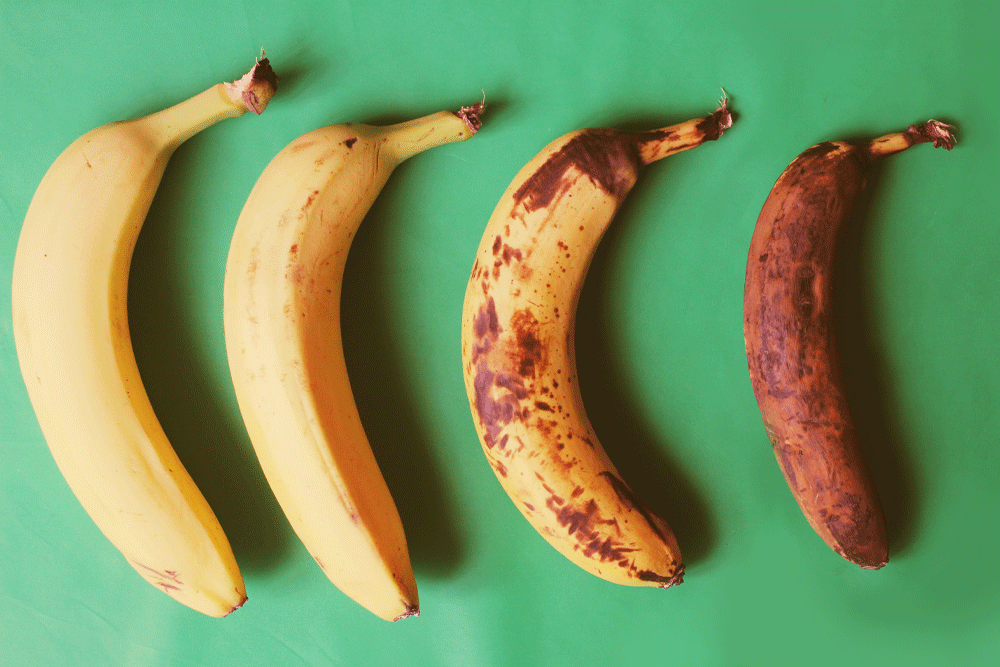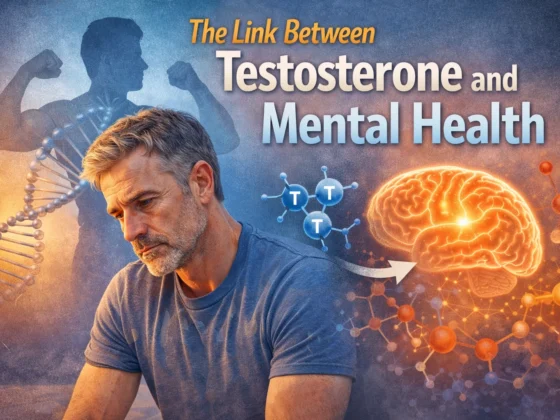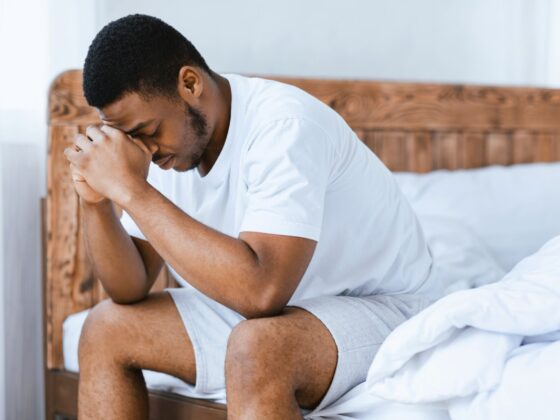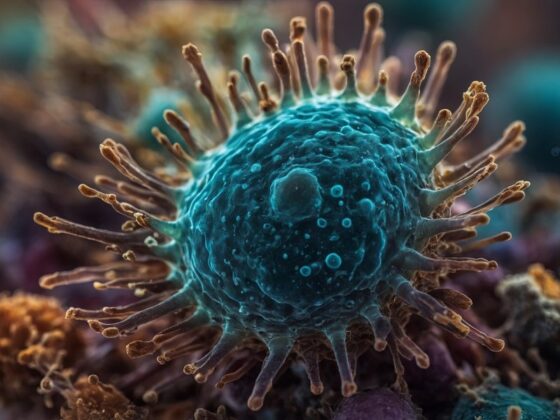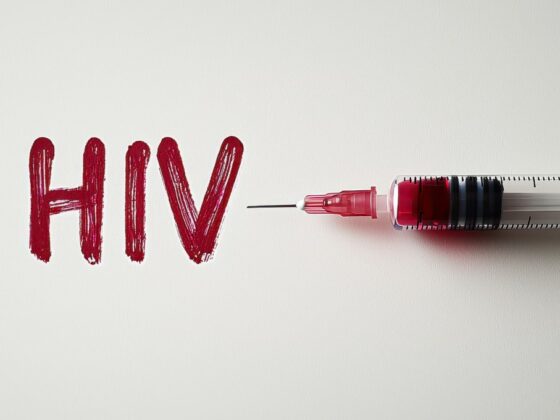Last Updated on 21st December 2023 by Charlie Walsh
Hair loss, wrinkles, forgetting where you parked the car at Walmart – just a few reminders that you’re not as young as you used to be. But have you ever considered the penis problems that happen with age?
Wait, what?
Like every other part of your body, the penis goes through a series of changes right from formative stages to your sunset days.
It may sound unreal, but here are 5 penis problems that happen with age:
You May Notice Shrinkage
As you age, you may start seeing a noticeable reduction in the size of your penis.
One reason for the change is the reduction of testosterone levels in your body.
Penis growth mainly occurs during puberty, which usually begins at the age of 9 to 14 and extends up to your early 20s.
A recent study established the average growth rate of a penis is about half an inch per year between the ages of 11 and 15, after which the growth continues albeit at a slower pace until you hit 19 or thereabouts.
During puberty, your body starts producing massive amounts of testosterone, responsible for the growth of your testes, scrotum and penis.
Testosterone levels peak in your late teens through to your early 20s. However, the level of testosterone will likely start dropping in your late 20s through your 40s.
After 40, your body will start making more sex hormone-binding globulin (SHBG), a glycoprotein that sticks to the testosterone in your blood to lower the amount available for your body use.
Less testosterone eventually leads to a decline in penis size.
In addition, penis shrinkage can occur due to a gradual build-up of fatty deposits in the arteries deep inside your manhood.
These fatty deposits reduce the blood flow into your penis, leading to the withering of the muscle cells in the spongy tubes of the erectile tissues.
During your younger days, the erectile tissue would be filled with blood to produce strong erections. However, a lack of adequate blood supply limits the overall size of your erections and, ultimately, the size of your penis.
You Might Experience Erectile Dysfunction
Not a subject that any man wants to think about, but one of the main penis problems that happen with age is the inability to gain or maintain an erection.
This condition is referred to as erectile dysfunction (ED).
ED affects as many as 30 million American men aged between 40 to 70 or older.
Common causes of ED in older men include conditions that block blood flows to the penis, including the hardening of the arteries (atherosclerosis) and diabetes.
Other disorders that come with old age, including hormonal imbalance disorders, neurological and nerve disorders and a faulty vein that lets blood drain too quickly from the penis, may also cause ED in older men.
You May Develop a Curved Penis
As you age, you may notice your penis is taking a bent or curved shape.
This curving could be due to Peyronie’s disease, estimated to affect approximately 1 in 10 men in the United States.
Peyronie’s disease is a condition where a scar tissue called plaque forms inside your manhood. The condition affects the flexibility of your manhood leading to painful erections and penis curvature.
Researchers believe the fibrous plaque is triggered by trauma that causes bleeding inside the penis.
Other possible causes of a curved penis include genetic elements and some medications. Although it happens mostly in middle-aged and older men, the disease can also affect the younger generation.
Peyronie’s disease rarely goes away on its own. Early treatment soon after developing the symptoms may help keep it from getting worse.
Increased Risks of Penile Cancer
Penile cancer is more prevalent in men older men. In the United States, the average age of diagnosis is about 68 years.
Penile cancer occurs when cells grow out of control on the penis. The condition usually starts in your skin cells before finding its way deep inside your penis.
Although experts are yet to find the exact cause of penile cancer, research shows it is more prevalent in men above the age of 60, smoke, aren’t circumcised, have weakened immune systems due to HIV/AIDS or have human papillomavirus (HPV).
Typical signs and symptoms of penile cancer include changes in skin thickness or color, small crusty bumps on your penis, a lump or a sore on your penis or bad-smelling discharge underneath your foreskin
Penile cancer affects less than one in every 100,000 men each year and accounts for fewer than 1% of cancers in men in the United States. If you notice unusual symptoms on or near your penis, inform your doctor right away.
Reduced Sensitivity
Ideally, a penis contains up to 4,000 nerve endings in the glans that are usually very sensitive. However, as you age, you may experience a gradual loss of sensitivity.
Reduced sensitivity can make it hard to arouse your organ or have an orgasm. Numbness may be due to low testosterone levels associated with aging.
Symptoms of penile numbness include:
- Blue or purplish skin.
- A burning or tingling feeling.
- Coldness in the penis or testicles and loss of sensation in the testicles perineum and the skin around the penis
At What Age Do Men Stop Ejaculating?
As men age, another significant change that often gets less attention is the potential decrease in ejaculation. This doesn’t just affect fertility but also has implications for sexual satisfaction and health. Let’s break this down by age groups:
Ages 18-30: During these years, men typically have no issues with ejaculation. Their testosterone levels are at their peak, contributing to high sexual drive and performance.
Ages 30-40: In this age bracket, men might start noticing slight changes. Stress, lifestyle, or health issues can begin to affect sexual health, including ejaculation frequency and volume, but significant issues are still uncommon.
Ages 40-50: This is when more noticeable changes can start. Testosterone levels begin to drop more significantly, potentially leading to decreased libido and less frequent ejaculation. Some men might also start experiencing early signs of erectile dysfunction.
Ages 50-60: Issues with ejaculation become more common in this age group. Men might notice a decrease in the force and volume of ejaculation. Health issues like prostate problems, which are more common in this age range, can also affect ejaculatory function.
Ages 60-70: During these years, many men see a more pronounced decrease in ejaculation. Some might experience delayed ejaculation or a complete lack of ejaculation. This can be due to a combination of factors, including lower testosterone levels, medications, and underlying health conditions.
Ages 70-80: Ejaculation issues are quite common in this age group. Besides hormonal changes and health conditions, prostate surgeries and treatments can significantly affect the ability to ejaculate.
Ages 80+: At this age, it’s common for men to have significant challenges with ejaculation. While sexual activity can still be enjoyable and possible, the lack of ejaculation might be a normal part of aging for many.
Causes and Assistance: The decrease in ejaculatory function with age can be attributed to various factors like hormonal changes, prostate health, medication side effects, and overall physical health. Understanding that this is a natural part of aging is important, but that doesn’t mean it can’t be managed.
Men experiencing changes in their ejaculatory function should consult their healthcare provider. Solutions might include medication adjustments, hormone therapy, lifestyle changes, or exploring other aspects of sexual activity for pleasure and intimacy.
Maintaining a healthy lifestyle, including regular exercise, a balanced diet, and avoiding smoking and excessive alcohol, can also help in preserving sexual health and function.
Assistance with a Bathmate Pump
In addition to lifestyle changes and medical consultations, regular use of a Bathmate pump can be a significant aid in maintaining sexual health and function as men age. Bathmate pumps are designed to enhance and promote penile health and erectile function through hydrotherapy.
Here’s how a Bathmate pump can assist:
- Improves Blood Circulation: Regular use of the Bathmate pump can help in improving blood flow to the penile tissues. This enhanced circulation can contribute to healthier erectile function and may aid in maintaining the strength and frequency of erections.
- Penile Health: By regularly exercising the penile tissues, the Bathmate pump can help in maintaining the elasticity and health of these tissues, potentially reducing the risk of erectile dysfunction and aiding in ejaculation.
- Confidence Boost: Alongside physical benefits, using a Bathmate pump can also boost confidence and sexual well-being, which are crucial components of a healthy sexual life, especially as men age.
- Complement to Lifestyle Changes: While a Bathmate pump can be beneficial, it’s most effective when used in conjunction with a healthy lifestyle, including diet, exercise, and regular health check-ups.
Preventing Penis Problems That Happen With Age
In a nutshell, although you are relatively familiar with your penis and its antics, there is more about your appendage to anticipate as you age.
The chances are that you may experience one or more of these penis problems as you age, but keeping an eye out for any early warning signs could mean detecting them early.
Maintaining a healthy lifestyle and regular penis exercises (yup, these are real), will certainly go a long way tackling these penis problems that happen with age.
